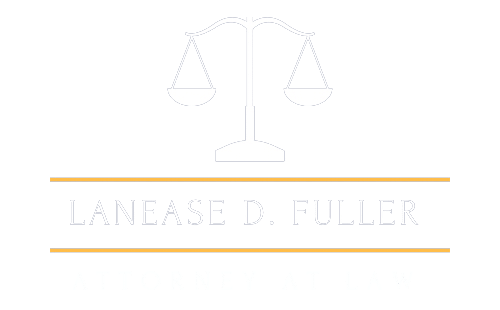Working with an attorney that has the legal experience to represent you and advocate for your needs is important. Attorney Lanease Fuller has been a practicing criminal defense attorney focusing on a variety of areas of law for over 26 years.
What Does A Litigation Attorney Do?
Initial Case Assessment and Investigation
Litigation attorneys in a plaintiff’s case often conduct an initial case investigation to determine if enough evidence exists to warrant filing a lawsuit. In a defendant’s case, he’ll assess what evidence exists to defend a potential or existing suit against his client.
The investigation process can include locating witnesses, taking witness statements, gathering documents, interviewing the client, and investigating the facts leading to the dispute.
Litigation attorneys often engage in pre-litigation settlement discussions to attempt to resolve the matter before a lawsuit is filed.
Drafting Pleadings
A variety of pleadings and motions must be filed with the court on behalf of both the plaintiff or the defendant in a lawsuit.
Plaintiff attorneys will draft and file a summons and complaint to initiate the lawsuit, and defense attorneys typically draft answers and sometimes counterclaims in response to that initial complaint. Defense attorneys collaborate with their clients to investigate the allegations of the lawsuit to formulate these responses.
Litigation attorneys might also draft a variety of pretrial motions, including motions to strike or dismiss evidence or to change the venue or location of the trial. They might file motions for judgments rendered on the basis of the pleadings, so no court appearance is necessary.
The Discovery Process
The discovery portion of a lawsuit involves the exchange of all relevant information between the parties. Litigation attorneys employ a variety of discovery devices to gain this information.
These methods can include interrogatories, a series of written questions that the other party to the lawsuit must answer—also in writing and under penalty of perjury. It can include depositions which involve oral questions typically presented by the other attorney in an office setting, again answered under oath.
Other common methods of discovery include requests for documents that are in the possession of the other party as well as requests for admission—asking the other party to admit to or deny certain aspects of the case in writing and under oath.
Litigation attorneys might also examine physical evidence and collect, process, and analyze information gathered during e-discovery. Most often, however, they rely on experts to provide these services. The experts submit written reports that can then be used at trial or they might be called to testify at trial.
Litigation attorneys also draft and argue discovery-related motions including motions to compel the other side to respond to discovery requests if they haven’t done so within a specified time period.
These discovery processes help litigators gain relevant information, identify issues, and formulate a case strategy.
Pre-Trial Tasks
The weeks immediately preceding trial are a time to wrap up discovery and prepare for court. Litigators consult with and advise clients, retain expert witnesses, attend pre-trial conferences, and develop trial strategies based on the facts and evidence.
They might also conduct pre-trial depositions of experts and key witnesses, prepare demonstrative evidence to be used as trial exhibits, and draft and argue pre-trial motions such as those dealing with the admissibility of certain evidence at trial.
Trial: Almost the Final Stage
When cases proceed to trial, litigation attorneys are busy around the clock presenting their case before the judge or preparing for the next day in court.
Litigators collaborate with experts and clients to craft a trial theme. They identify the strengths and weaknesses of a case and develop persuasive arguments. They prepare witnesses and their clients for testimony.
A process called voir dire begins a trial. It is the process of selecting a jury. Litigators then present their cases in court, giving opening and closing statements to the judge or jury, examining and cross-examining witnesses, and crafting their version of the case through testimony and evidence. Litigation attorneys might also conduct post-trial interviews of the jury.
The Possibility of Settlement
Most cases never reach trial but instead are settled to eliminate the risk and expense of going to court. Litigation attorneys can settle a case at any time during the life cycle of a lawsuit.
Litigators will engage in negotiations with opposing parties and sometimes participate in mediation and settlement conferences with the judge. They’ll create settlement brochures, agreements, releases, and other materials to memorialize any agreement that’s reached.
The Appeals Process
An attorney might appeal the case for her client if the trial goes badly, but he can’t do so simply because she doesn’t like the outcome. She must present evidence as to why the trial court’s decision was wrong in some way based on issues such as certain evidence being admitted at trial when it should not have been.
Litigators might draft post-trial motions, identify and preserve issues for appeal, develop appellate strategies, gather evidence for the appellate record, research procedural issues, draft appellate documents, and present oral arguments before appellate courts.
If the case is particularly significant or complex, litigators might retain the assistance of attorneys who specialize in appellate practice.
Civil Attorney in Fort Bend County, Texas
Attorney Fuller is a seasoned attorney with nearly three decades of experience representing a wide range of clients. This includes individuals who have suffered an injury due to another’s actions, individuals facing criminal charges, those who have been arrested for DWI, individuals who have found themselves in a civil litigation dispute, and those looking for legal guidance in business.
After filling out a client intake form, Attorney Lanease D. Fuller will take appropriate action in your case to help you get the results you are looking for. This includes but not limited to gathering evidence, going to trial, and earning a settlement that is appropriate for your specific situation. Reach out to us today to take the first step towards settling your case.
LANEASE D. FULLER LAW
4615 S. Frwy St. 820
Houston, TX 77051
713-439-7400
Google Listing


